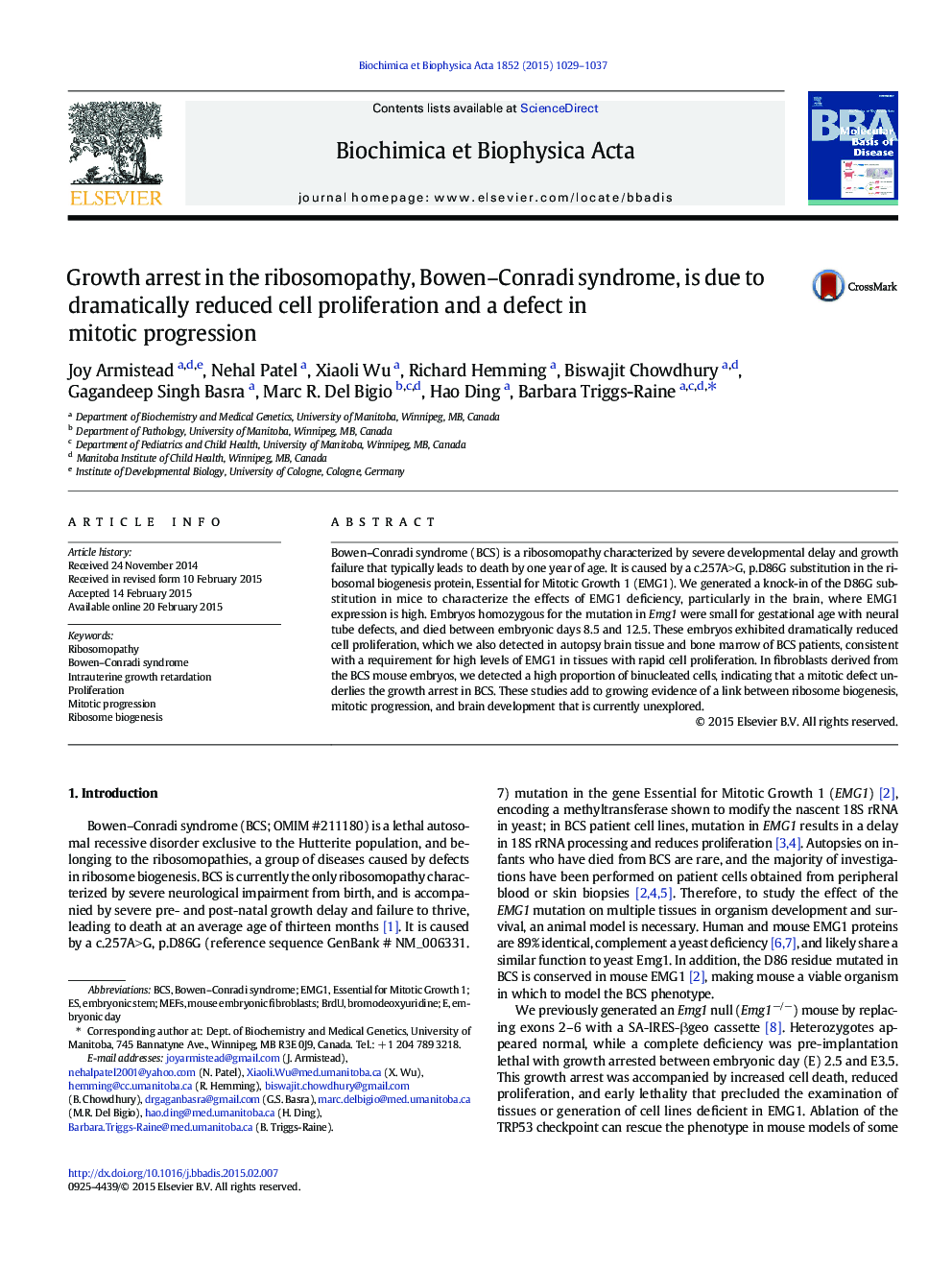| Article ID | Journal | Published Year | Pages | File Type |
|---|---|---|---|---|
| 8259939 | Biochimica et Biophysica Acta (BBA) - Molecular Basis of Disease | 2015 | 9 Pages |
Abstract
Bowen-Conradi syndrome (BCS) is a ribosomopathy characterized by severe developmental delay and growth failure that typically leads to death by one year of age. It is caused by a c.257A>G, p.D86G substitution in the ribosomal biogenesis protein, Essential for Mitotic Growth 1 (EMG1). We generated a knock-in of the D86G substitution in mice to characterize the effects of EMG1 deficiency, particularly in the brain, where EMG1 expression is high. Embryos homozygous for the mutation in Emg1 were small for gestational age with neural tube defects, and died between embryonic days 8.5 and 12.5. These embryos exhibited dramatically reduced cell proliferation, which we also detected in autopsy brain tissue and bone marrow of BCS patients, consistent with a requirement for high levels of EMG1 in tissues with rapid cell proliferation. In fibroblasts derived from the BCS mouse embryos, we detected a high proportion of binucleated cells, indicating that a mitotic defect underlies the growth arrest in BCS. These studies add to growing evidence of a link between ribosome biogenesis, mitotic progression, and brain development that is currently unexplored.
Keywords
Related Topics
Life Sciences
Biochemistry, Genetics and Molecular Biology
Ageing
Authors
Joy Armistead, Nehal Patel, Xiaoli Wu, Richard Hemming, Biswajit Chowdhury, Gagandeep Singh Basra, Marc R. Del Bigio, Hao Ding, Barbara Triggs-Raine,
